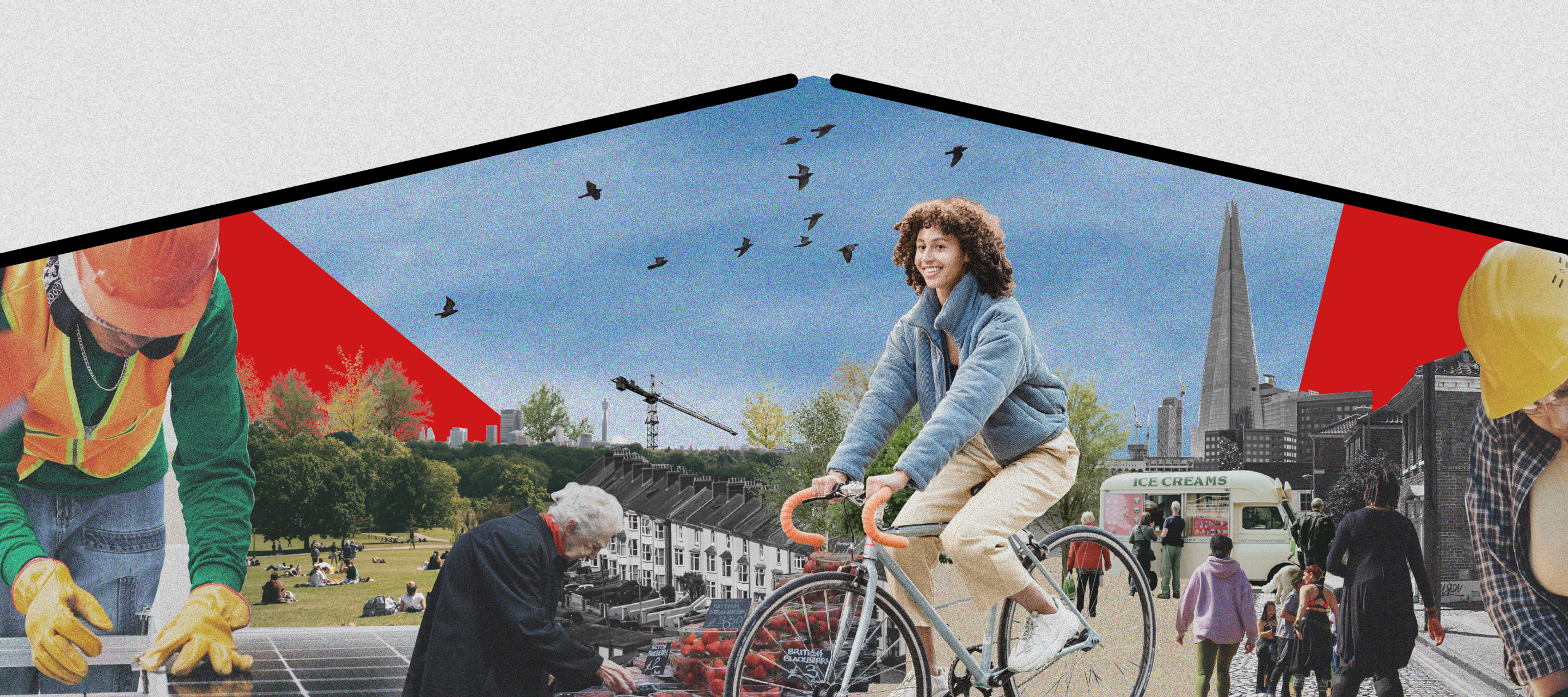The Built Environment Just Transitions Accelerator - UK
A multi-stakeholder initiative placing workers' rights and housing rights at the heart of decarbonisation in the UK.

Summary
- The Built Environment Just Transitions Accelerator (BEJTA) is a multi-stakeholder initiative to centre workers' rights and housing rights in the decarbonisation of Denmark’s, Spain’s, and the UK’s built environments.
- Just transitions refer to ensuring that the benefits of climate initiatives – like retrofits, improving energy efficiency for heating and cooling, or better construction jobs – are spread equitably, and the costs are not borne by traditionally excluded or marginalised groups.
- This webpage outlines the main activities and resources of the UK Accelerator.
Why accelerate just transitions in the UK’s built environment?
- The built environment accounts for 25% of the UK’s carbon emissions, and must reduce these by 76% from 2018 levels by 2035. With the Government targeting the construction of 1.5 million new homes by 2030, only a just transition can ensure we meet both housing and decarbonisation goals.
- Almost two-thirds of workers - nearly 4.5 million people - are struggling to pay rent. The average salary needed to buy a house is £53,600; higher than the average salary of £37,856, and significantly more than the £23,000-£35,000 average salary of the builders constructing the houses.
- To achieve critical housing equity for communities and construction workers – in order to rapidly build new homes and refurbish existing housing stock – we must align a rights-based approach with decarbonisation goals to meet essential net zero targets.
- A just transition is a solutions-based approach to the challenge through the mitigation of carbon impacts while meeting workers’ rights to fair pay, voice and wellbeing, and to ensure communities housing rights to security of tenure, affordable and habitable homes.
Our Approach
- The UK Built Environment Just Transitions Accelerator brings together civil society organisations, policymakers and front-running businesses to help embed the right to housing and labour rights into decarbonisation initiatives, reducing risk and broadening support by ensuring no one is left behind.
- The Accelerator aims to achieve impact through three channels: advancing voluntary practice by front-running businesses, collective advocacy to strengthen regulation and level the playing field, and shaping narratives for systemic change
Advancing practice
- Discuss shared experiences, challenges and ideas with like-minded experts across sectors.
- Encourage leading businesses to voluntarily adopt policies and practices that align with human rights principles, reducing risk and increasing pre-competitive advantage.
Influencing policy
- Collectively advocate for governments to strengthen housing and labour rights in built environment policies and regulations
- Raise the floor for mainstream business change through compliance, levelling the playing field.
Shaping narratives
- Demonstrate how a human rights approach can support leading real estate and construction firms in managing risk, reinforcing market leadership and building resilient business models.
- Collate and promote stories of businesses that are setting themselves apart in driving the just transition, highlighting the real-life impacts on communities’ wellbeing and prosperity, and inspiring wider sector transformation.
Activities
- 2 December 2025 | Online Session – Policy Working Group
This session provided a collaborative space for businesses, civil society, and policymakers to assess the evolving UK policy landscape and identify opportunities to influence government strategies to respect the right to adequate housing. See the takeaways document below. - 18 November 2025 | Online Session – LAVA Working Group
This workshop explored the advancement of the Labour Agency Vendor Accord (LAVA), a voluntary standard designed to strengthen construction workers’ rights and tackle labour exploitation across the UK construction supply chain. Click here to read the takeaways document. - 22 September 2025 | In-person Event – Second Roundtable
This session convened construction businesses, policymakers, and civil society to discuss ethical recruitment, workers’ voice, and reforms that align climate goals and housing targets while upholding labour and housing rights. Click here to read the takeaways document. - 15 May 2025 | In-person Event – Accelerator Launch
Forty leading stakeholders across the industry, investment, civil society, and government convened to identify key risks and opportunities for a just transition in the built environment. Click here to read the takeaways document.
Want to learn more?
Contact the project lead, Gordon Miller, at gordon.miller@ihrb.org
Team
Meet our Built Environment team and learn about their expertise.



















